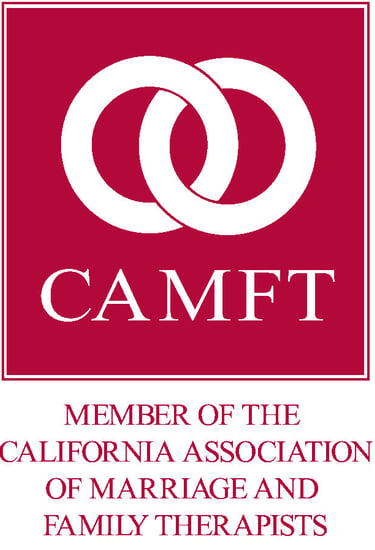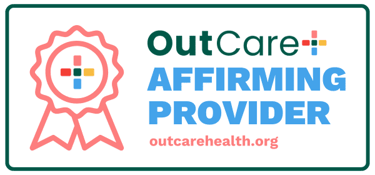Challenging Myths: How Social Contact Helps Dismantle LGBTQ+ Conspiracy Beliefs
A recent study highlights how social interactions reduce LGBTQ+ conspiracy beliefs. This blog explores key findings, the psychology behind conspiracies, & the humanizing power of connection.
LGBTQ+


Conspiracy beliefs can be deeply harmful, reinforcing stigma, discrimination, and social division. A recent study published in the British Journal of Social Psychology highlights a powerful way to counter these beliefs: meaningful social contact. The research suggests that when people have more exposure to LGBTQ+ individuals in everyday life, they are less likely to believe harmful conspiracy theories about the community.
Understanding Conspiracy Beliefs and Their Impact
Conspiracy beliefs about marginalized communities often stem from misinformation, unfamiliarity, and deeply ingrained biases. These false narratives can fuel division, justify discrimination, and create barriers to equality. When it comes to LGBTQ+ individuals, some conspiracy theories depict the community as having hidden agendas or disproportionate influence, further deepening societal divides.
The study underscores how vital it is to challenge these misconceptions. But how can we do that effectively? One of the most impactful ways is through genuine, positive interactions with LGBTQ+ individuals.
The Psychology Behind Conspiracy Beliefs
Why do people believe conspiracy theories? The answer lies in human psychology. Many conspiracy theories offer simple explanations for complex social issues, giving people a sense of control in an unpredictable world. Cognitive biases, like confirmation bias (seeking information that supports what we already believe) and proportionality bias (assuming that big events must have equally big causes), make conspiracy theories feel convincing—even when they’re not based in reality.
Beyond cognitive biases, conspiracy beliefs fulfill certain emotional and psychological needs, such as:
The need for certainty – When the world feels chaotic, conspiracy theories can provide a (false) sense of clarity and understanding.
The need for belonging – Conspiracy theories often thrive in tight-knit groups that reinforce a shared “secret knowledge.”
The need for control – Believing in hidden forces shaping the world gives people a sense of agency, even if those beliefs aren’t based on facts.
Why Are Conspiracy Beliefs So Hard to Change?
Once a person embraces a conspiracy belief, letting go of it can be incredibly difficult. Several factors contribute to this resistance:
Self-Sealing Logic – Many conspiracy theories are designed so that any contradictory evidence is dismissed as “part of the cover-up.”
Echo Chambers – Social media and certain communities reinforce existing beliefs by surrounding individuals with like-minded perspectives.
Emotional Investment – Conspiracy theories can become deeply personal. Admitting they are false might mean questioning one’s identity and past beliefs.
Distrust in Authorities – Many conspiracy theories thrive on skepticism of mainstream institutions, making it difficult to counter misinformation with credible sources.
The Study: Exploring the Role of Social Contact
The research explored the relationship between how often people interact with LGBTQ+ individuals and their likelihood of believing LGBTQ+ conspiracy theories. The findings suggest a strong link: the more everyday exposure people have to LGBTQ+ individuals, the less likely they are to hold these harmful beliefs. This aligns with broader psychological research showing that familiarity with marginalized groups helps reduce bias and misinformation.
Why Does Social Contact Work?
Engaging in meaningful social contact with LGBTQ+ individuals can shift perspectives in several powerful ways:
Humanization – When people interact with LGBTQ+ individuals in real-life settings, they see them as complex, multifaceted individuals rather than stereotypes.
Cognitive Dissonance – When reality contradicts someone’s preconceived beliefs, it creates discomfort, which can prompt them to reconsider their views.
Empathy Development – Hearing about the experiences, struggles, and triumphs of LGBTQ+ individuals fosters deeper emotional understanding and connection.
Reduction of Fear and Mistrust – Misinformation and fear go hand in hand. Personal experiences help replace uncertainty with real knowledge, diminishing the power of harmful narratives.
How This Benefits Society and Mental Health
Reducing LGBTQ+ conspiracy beliefs doesn’t just benefit the LGBTQ+ community—it has ripple effects that create a more open, accepting, and mentally healthy society. Research suggests that people who engage in positive social contact experience:
Less prejudice and social hostility
A greater sense of openness and inclusion
Lower anxiety about social change
From a mental health perspective, ongoing prejudice places a heavy emotional toll on marginalized communities. Creating an environment where misinformation is replaced with truth and empathy benefits everyone, improving collective well-being.
Ways to Foster Positive Social Contact
To help create a more inclusive world, we can all take small but meaningful steps to increase positive social contact. Here’s how:
Engage in Community Events – Attend LGBTQ+ celebrations, panels, or fundraisers to meet people and learn from their experiences.
Have Open, Respectful Conversations – Listen to LGBTQ+ individuals and be open to learning from their stories and perspectives.
Check-in - Check-in with your LGBTQ+ family and friends during times when they may be extra vulnerable due to discriminatory national and local legislation.
Explore Educational Resources – Read books, watch films, and follow credible sources that present LGBTQ+ lives authentically.
Be an Ally – Speak up against discrimination, challenge misinformation, and advocate for inclusivity in your own circles.
Final Thoughts
The research offers an encouraging message: meaningful connections have the power to change hearts and minds. By fostering real relationships with LGBTQ+ individuals, we can break down harmful stereotypes, challenge conspiracy beliefs, and create a more compassionate world.
If you or someone you know is struggling with these topics—whether it's confronting internalized biases or dealing with the stress of societal prejudice—therapy can provide a supportive space for reflection and growth. Understanding and change are lifelong journeys, and taking that first step toward openness and empathy can make all the difference.





